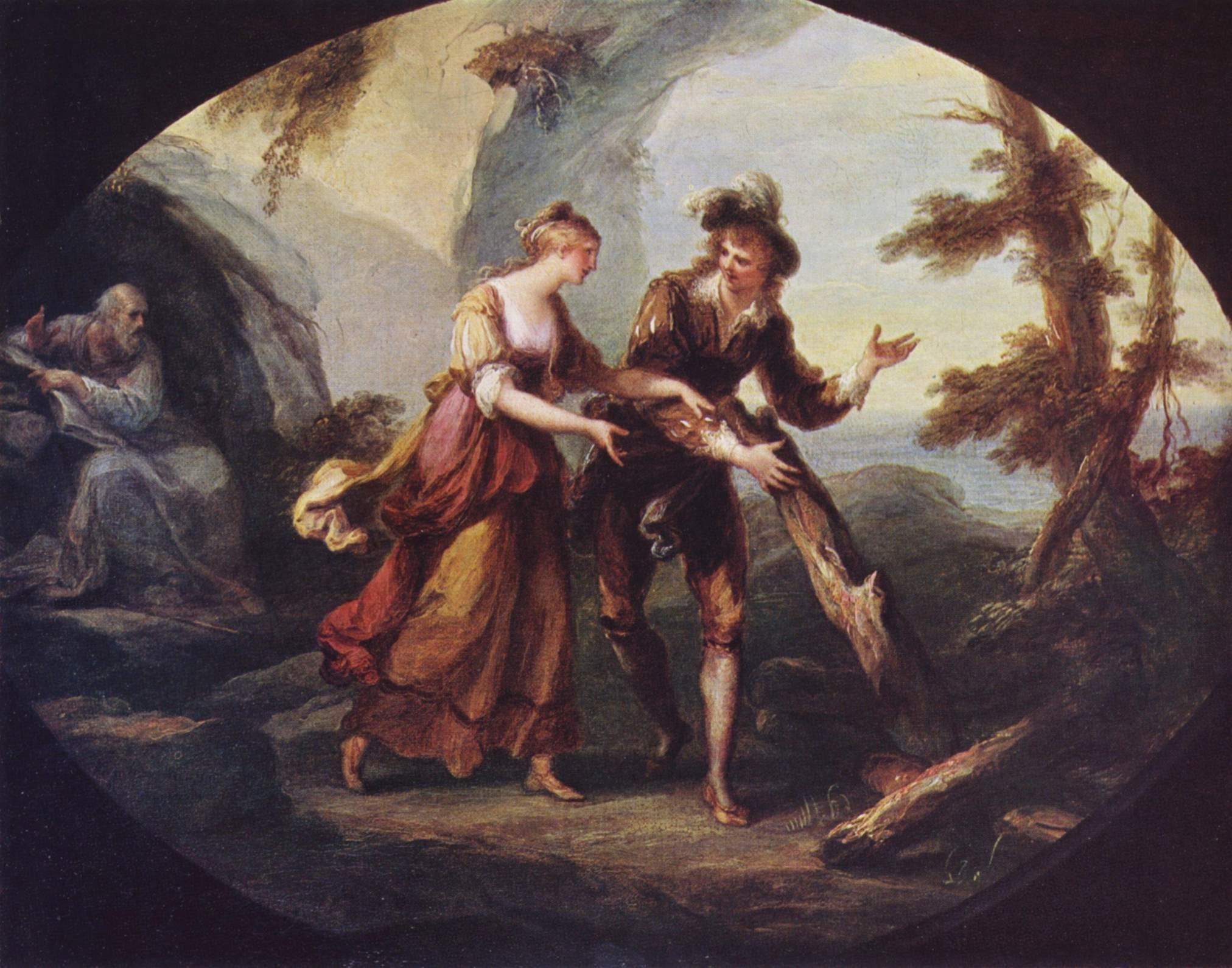Chapters
The Tempest is a masterful work by a literary genius and icon. It is one of many Shakespeare plays that you might focus on if you are studying English literature at GCSE (or in A-Levels and even at degree level).
Understanding the themes is crucial for grasping the deeper meanings behind the characters' actions and the play's events. This guide will help you explore the key themes in The Tempest making it easier to study and revise for your exams.
It is important to realise that in Shakespeare plays, the message is often within the themes rather than within the plot. The way the characters interact, and the topics they cover, are crucial to the story.

Power and Authority
One of the central themes in The Tempest is the struggle for power and authority. This theme is explored through the relationships and actions of several characters. This is something that Shakespeare often featured in his plays.
Some of the examples of the struggle for power in The Tempest and the way it is explored include:
- Prospero's Power: Prospero, the rightful Duke of Milan, uses his magical abilities to control the island and its inhabitants. His power is evident in the way he manipulates events to achieve his goals, such as creating the storm that shipwrecks his enemies on the island.
- Antonio's Betrayal: Prospero’s brother, Antonio, usurped Prospero’s dukedom, showcasing the theme of political power and betrayal. Antonio's ambition and willingness to betray his own brother highlight the corrupting influence of power.
- Caliban's Rebellion: Caliban, the native inhabitant of the island, resents Prospero's control and attempts to rebel against him. This struggle reflects the theme of power and colonisation, as Prospero represents the European coloniser imposing his will on the native population.
So dry he was for sway wi’ th’ King of Naples
Antonio has betrayed Prospero
To give him annual tribute, do him homage,
Subject his coronet to his crown and bend
The dukedom, yet unbowed – alas, poor Milan! –
To most ignoble stooping.
Magic and the Supernatural
Magic is a big theme in The Tempest, and it plays a role in both the plot and the characters' interactions. This analysis explains that Shakespeare has even shaped the way that we think of the Supernatural, due to his pioneering descriptions.
In The Tempest, Prospero’s command over magical arts is central to the play. His ability to control spirits like Ariel and create illusions demonstrates the power of the supernatural. Prospero’s magic serves both as a means of enacting his will and as a symbol of his intellectual superiority.
Ariel, a spirit bound to serve Prospero, represents the ethereal and mysterious aspects of the supernatural. Ariel's magical interventions, such as creating the tempest and leading the shipwrecked passengers, are crucial to the play’s unfolding events.
The Enchanted Island itself is a place of wonder and mystery. Its magical qualities create a setting where the normal rules of reality do not apply, allowing Shakespeare to explore themes of transformation and illusion.
Forgiveness and Redemption
The theme of forgiveness and redemption is central to the resolution of the play.
Initially, Prospero is driven by a desire for revenge against those who wronged him. However, by the end, he chooses forgiveness over vengeance. His decision to pardon Antonio and Alonso, and to release Ariel, marks his personal growth and redemption.
Alonso’s Repentance is also a furthering of this theme. Alonso, the King of Naples, shows genuine remorse for his part in Antonio’s betrayal of Prospero. His repentance paves the way for reconciliation and underscores the theme of redemption.
Caliban’s character also reflects this theme. Despite his initial hatred and rebellion, by the end of the play, he expresses a desire to seek Prospero’s forgiveness and learn from him.
Though with their high wrongs I am struck to th’ quick,
Prospero forgives his enemies
Yet with my nobler reason ‘gainst my fury
Do I take part. The rarer action is
In virtue than in vengeance: they being penitent,
The sole drift of my purpose doth extend
Not a frown further. Go release them, Ariel:
My charms I’ll break, their senses I’ll restore,
And they shall be themselves.
Nature Vs. Nurture
The play explores the influence of nature versus nurture on human behaviour and character:
Caliban is often depicted as a product of his natural environment, embodying the "savage" native. However, Prospero’s attempts to civilise him through education show the potential for nurture to shape character.

Miranda’s innocence can also be seen as an analysis of nature or nurture. Raised on the island with limited human contact, Miranda represents purity and innocence shaped by a sheltered upbringing. Her reactions to the newcomers reflect her untainted perspective, influenced by Prospero’s nurturing.
Colonialism and Slavery/Servitude
The Tempest can be seen as an allegory for European colonisation and the exploitation of indigenous peoples. Prospero’s domination over Caliban reflects the dynamic between colonisers and the colonised. Caliban’s resistance and desire for freedom highlight the tensions and injustices inherent in colonial rule.
Ariel’s servitude to Prospero can also be seen in this light. Although Ariel serves willingly, he longs for his freedom. Prospero’s promise to grant Ariel liberty at the end of the play symbolises the eventual, though conditional, end of colonialism.
Conclusion
When you need to analyse this play for your exams or coursework, exploring power and authority, magic and the supernatural, forgiveness and redemption, colonialism and servitude, and nature versus nurture, you can gain a richer insight into the characters and the narrative.
With great writers, there is always a story behind the story, and themes are used as subtext to explore other ideas. Use this guide to help structure your study and revision, ensuring you can confidently discuss and analyse these themes in your exams.
What do you think is the main theme of The Tempest?
How does Shakespeare represent power throughout The Tempest?












